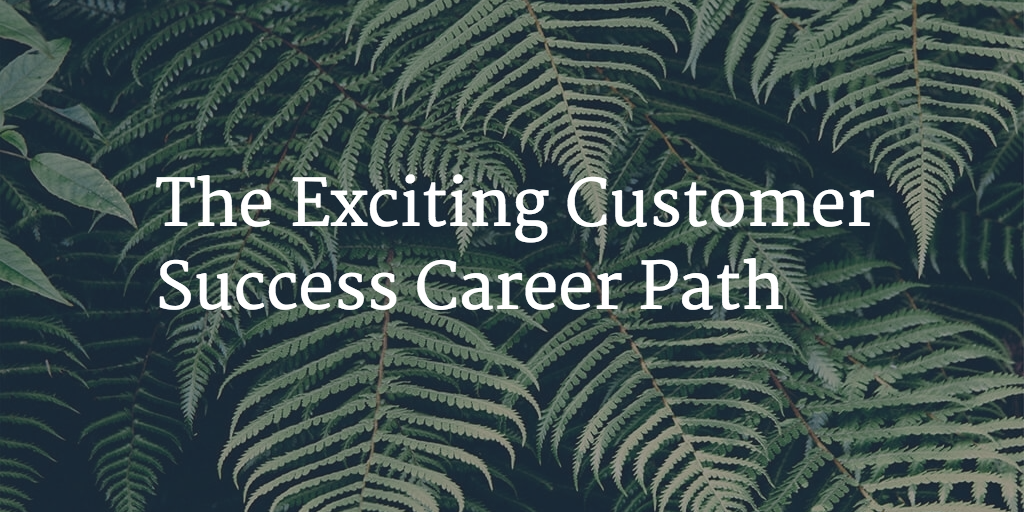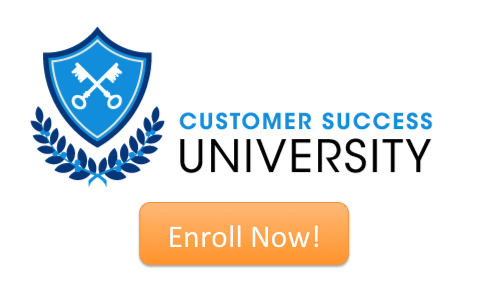If you are young and just starting out in business, or just restarting your career in Customer Success, it’s a perfectly legitimate question to ask not just “Why Customer Success as a career?”, but also where it might lead. The good news is that the skills required, and that you will develop, to be a high-performing CSM will serve you very well no matter what you choose to do in your next role and the one after that.
Very few people actually choose their careers. It’s much more common that their career chooses them. We tend to migrate towards the things we do well and that we like doing (those usually go together). Not all 22 year-olds know exactly what they want to do so wandering a little is likely and may even be a good thing.
Perhaps some of the Engineers or Accountants or Marketing people know exactly what they will be doing for the rest of their lives. But no one goes to school to be a Customer Success Manager. However, here you are and you should have some idea where it can take you.
One thing is clear – the need for Customer Success experience in the next 10 years will grow exponentially as the world moves to subscription software models. So you should feel good that you are in the right place at the right time. If you stay in this field, your value will increase enormously and rapidly.
That means that one of the logical career paths for you is to simply grow within that field. Someone needs to manage the CSMs as their numbers grow, although we don’t really know what title to put on this role – Customer Success Manager’s Manager? In any case, this will become extremely prevalent as customer bases, and your CSM teams, grow.
Above that will come more hierarchy – Directors of Customer Success and VPs of Customer Success. As in any field, the higher up the management chain you go, the broader your expertise. The best CSM in the world may not make a good VP of Customer Success because the VP role requires a broad knowledge of all of the other organizations in the enterprise and how they affect Customer Success.
The reality is that a great CSM is almost certainly going to understand that very well and is likely to be a highly qualified candidate for a Director of VP role. The tricky part then is whether the best person at doing the job is the best person for managing it. This is often not the case and sports analogies abound to make this point.
The bottom line is that if you want to stay in Customer Success and grow your career there, you will likely have a great opportunity to do so. It’s even a career path that could lead to becoming a CEO. One key aspect of being a successful CEO is understanding intimately how the pieces of the company organizational puzzle fit together and one could argue that Customer Success people will understand this better than any other role in the company.
If not CEO, then Chief Customer Officer is a perfectly legitimate aspiration. That role typically has responsibility for the entire post-Sales customer experience. That’s OnBoarding, Customer Support, Professional Services, Customer Success, and perhaps even Customer Marketing and Install Base Sales (renewals and upsell). Those are all areas about which an experienced CSM will have a wealth of knowledge.
But let’s also look outside of Customer Success because few career paths stay within the same discipline for 30-40 years. The skills developed as a CSM will almost certainly create opportunities for you in:
Sales – the primary skills of any good Sales Rep are their customer-facing skills. Building relationships, gaining trust, influence management, and clearly articulating value. One could argue that those are also the primary skills of a good CSM. Whether you want to carry a quota and love “the thrill of the kill” is a different question. But, if you do, you can definitely move into Sales and there’s a good chance you’ll have gotten a chance to practice closing by doing renewals and possibly even some upsells.
Product Management – one of the primary roles of a CSM is what can be called “Field Product Management. You’ll be closest to the actual users of your product. You will understand what works and what doesn’t and what they wish it could do that it won’t do. And you’ll get good at articulating the needs in a way that they can be turned into product solutions. A great CSM who loves technology and building things could become a top-notch Product Manager.
Professional Services – if you are a CSM for a complex product, you will, by definition, develop consulting skills. In fact, much of what you do will likely become paid-for services at some point in your company’s lifecycle. Your skills will most certainly be there, the difference in Professional Services will basically be how you are measured (utilization). Your combination of product and domain expertise coming out of Customer Success will make this a very logical career choice for you.
Training – one thing you’ll find for sure is that most of what you do as a CSM could fall under the label “training”. How else do you get customers to use your product but by training them on how easy and valuable it is? At an early-stage company, you’ll also be developing training materials (usually PowerPoint) as needed by your customers. Plus, you will know the product inside-out and this career direction is a no-brainer if you want it.
Congratulations! You’ve happened upon, or chosen, and amazing career opportunity when you decided to become a CSM. And, even better, that choice will lead to a number of other wonderful choices as your career progresses. You’ll also find that the skills you develop in dealing with unhappy or silent customers are excellent life skills, too.
There will be many days where the lessons you are perfecting in Customer Success will make you a better spouse, parent, sibling, and friend. You won’t get paid any extra for that, but it will most definitely pay off.
To take your Customer Success Career to the next level, enroll in Customer Success University now.


